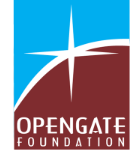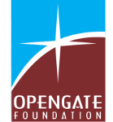Self-Help Groups
Live hoods and women empowerment
Women are facilitated to come together through Self-Help Groups.
We help them form informal associations in their community with a common objective of working together for their economic, political and social development and empowerment and also for their overall area development.
Poor women are empowered to realize their own potential, and determine their destinies.
They regain power to challenge structures and systems that make the people poor, and claim their rights and privileges. We acknowledge that poverty is not merely a lack of financial resources, and so we empower them in three main fronts; social, economic, and political.
Under this the project Foundation use Family Circles Care model in improving the capacity of these families. Family circles allow and give more prominence to working within their own environment (life-space) and working in the moment, which is more empowering and less restrictive.
Families take charge of resolving issues that surround them and are able to determine what is best in prevailing situation. The project uses the Self Help Initiative to create family groups. The Self Help Initiative aims at identifying and solving economic-social issues such as roads, schools, healthy, sanitation, nutrition, and recreation activities for the children, skills training for the youths and empowerment for parents at family level. The Self Help initiative through the creation of family groups encourages collaboration with already existing structures.
Building community resilience to manage crisis
Famine Relief and Emergency Actions
- Households are given food rations to alleviate hunger
- Provision of basic health access for children and the elderly while linking them where possible with government health services
- Sanitation and water supplies
Building Resilience
Long Term Interventions
- Building the community capacity on livestock management and alternative means of livelihoods.
- Building the economic capacities of Households to enable them support vulnerable members
When you partner with Open Gate Foundation Kenya you make it possible to reduce the immediate effects of hunger and disease on the children and the community while investing in the long term initiatives of building community resilience to manage crisis.
Our aim is to see lives changed and the poor empowered through six different types of partnership (most of our partnerships cover two or more of these types):
Microenterprise and Microloans
Providing small loans to help initiate small businesses is a key strategy for helping lift communities out of poverty. We have helped formulate approaches that achieve very high payback rates and stronger community outcomes. Critically, microloans give people an opportunity to provide for their own lives and families, avoiding dependency and helping them to fully participate in local economies
Community and Agriculture Development
Strong communities are critical in helping the poorest of the poor emerge from poverty. We are connected to partners throughout the developing world that are working to strengthen communities by addressing underlying issues, challenging mind-sets and providing economic opportunities. We are particularly engaged with providing Foundations for Farming training to promote effective agriculture.
Humanitarian
Many of our partnerships aim simply to improve the living conditions and quality of life for people in the most marginalized communities. This may be through access to healthcare, social support or relief after a natural disaster or conflict.
Training and Education
We have a strong focus on vocational training, enabling the poorest of the poor to attain the skills they need to secure sustainable employment or start small businesses.
Orphans and Vulnerable Children
Poverty tends to disproportionately affect children. We work with our partners to ensure that vulnerable children are protected, have access to education and are able to pursue opportunities for the future that will help lift them out of poverty.
Evangelism and Church-planting
The Gospel is at the heart of everything we do. We are not interested in simply solving economic problems, but focus also on addressing the spiritual problems that cause poverty, and keep people locked into cycles of intergenerational poverty.
Beyond these categories of partnerships, there are also four levels of engagement in transforming communities that determine how we get involved, and what the timeframes are likely to be:
Relief
Relief is a response to a crisis such as a tsunami or war. It is about meeting short-term unexpected needs. This is a phase that takes months or years.

